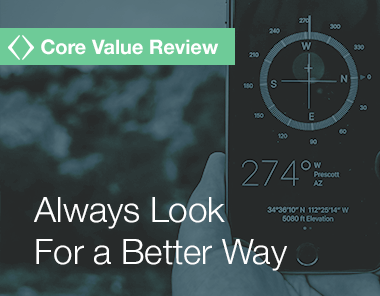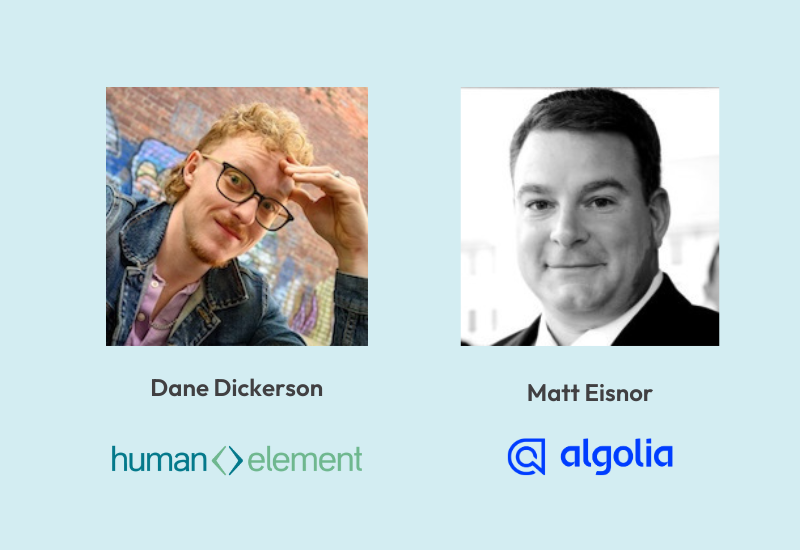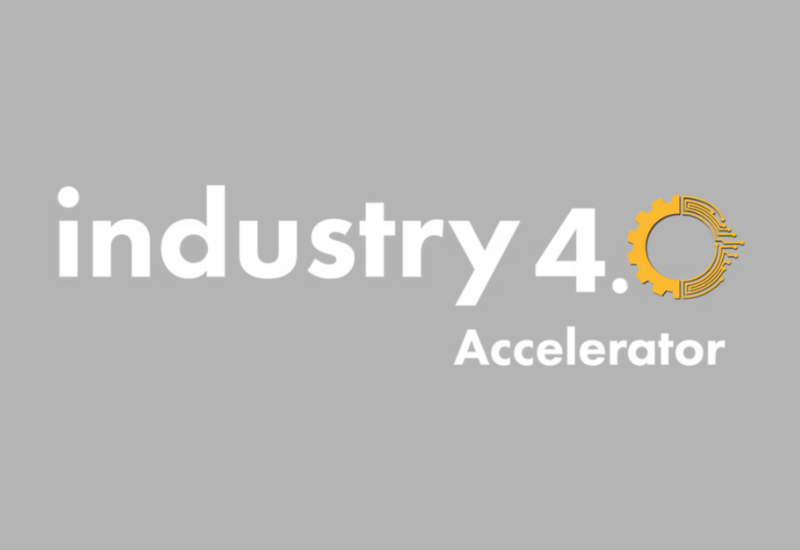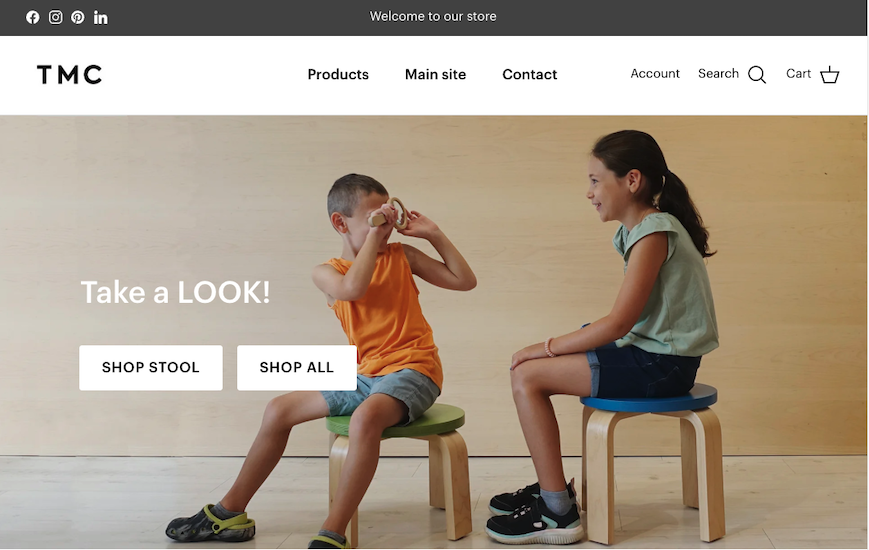 Defining and maintaining a set of relevant core values is not only important to the integrity of the organization, but to its success in the industry. Because while standards, best practices, and strategies may fluctuate with the seasons, there will always be greater opportunity for growth when an organization has a code to rest on (pun intended), and knows that their decisions are justified in it.
Defining and maintaining a set of relevant core values is not only important to the integrity of the organization, but to its success in the industry. Because while standards, best practices, and strategies may fluctuate with the seasons, there will always be greater opportunity for growth when an organization has a code to rest on (pun intended), and knows that their decisions are justified in it.
Company core values can be as ready-made as an inspirational poster. You know the kind. A dramatic scene featuring a group of animated, teeth-gritting people rowing a boat or pulling a rope in a battle with the temptation of poor judgments. But, even though there is deep eye rolling when considering these motivational works, the values communicated are actually important – if we can cease to be cynics for a few minutes. Though it is hard for me to suspend the lingering cynical attitude of my inner teenager, I also think it’s important to put aside our biases and strip down the day-to-day office behaviors to remark on the “why,” which is often so eloquently communicated in motivational posters.
When Ben (Lorenz) and I created Human Element, we had a lot of reasons for the entrepreneurial voyage, but the most prevalent was that we were tired of working for unrealistic, unappreciative companies and were determined to build a place where people wanted to come to work. We followed the Traction business methodology and continue to do so today with a more agile process. We established core values that are continuously reviewed, now with the rest of the leadership team, to keep Human Element progressive and grounded. I’d like to talk today about one of those values: Always Look For A Better Way.
It seems so obvious, right? To me, evolution in business is intuitive. You have to stay competitive, you have to learn from both success and failure to be ever better. And even more so than in a professional dynamic, “looking for a better way” should be a part of our daily personal lives – all the time, in every aspect. It is so core to who I am, that I never realized how strongly I felt about the concept until I began thinking about it as a blog topic.
Working primarily on the Magento platform, our clients’ eCommerce stores have a variety of custom, individualized requirements to best meet the needs of their customers. And while Magento and M2 have some really cool features, especially for B2B, there is always a way to customize. To provide and maintain these stores, whether it’s in fixing a bug, launching a new feature, or simply updating keywords, our team has to remain focused and be continuously learning the intricacies of their function within the Human Element web to keep our clients’ sites at the forefront of their industry. If we don’t do it, then the clients we have built relationships with over months, years working together, will mean nothing – and they will likely move on to find an agency that will do it better. It’s our job to be the best.
Always looking for a better way allows us to strive every day to be the best. In my own day-to-day work, I almost never do a process or a project the same way twice. Never. I always try to improve something every time I do anything by taking a different approach or starting at a different point or shifting the point of view. And it’s true for all of the things I do outside of the software world: from song writing, music production, brewing beer, general household projects, etc. For most of my life I have simply chalked this up to being wildly inconsistent or having a bad memory (which may also be true). But when I take stock and look deeper into the thought behind my actions, I see that there is a very real reason why this Human Element defined core value is of such great importance to me.
I recently looked back at my homebrew notes and noticed that each batch log became more detailed with every brew, and when I tried to reproduce the same batch there was a process improvement or variation aimed at improvement each time. It is that kind of methodology that we employ at Human Element throughout every process. Some tasks like ticket writing, research, campaign updates, team standup meetings, etc. feel repetitive, and (generally) not enough attention is given to the task to allow the team member the opportunity to even identify areas for improvement.
At Human Element, we are always looking at processes or practices that need improvement. We recently released a new internal process, Catalyst, an Agile-based methodology. The update was implemented in Q1 this year, and we have already found areas for improvement as well as great successes. Read more about it in this phenomenal blog by Director of Development, Paul Briscoe. In the months ahead, we will focus on our planning and design (P&D) process: what is working and what we can improve. Our wide swath of team members will work on architecting the new P&D process and develop a roll out plan. But what’s most important to remember is that as a team, we never stop evolving. Once the new P&D approach is implemented, we will dive into something else and try to make it better. Always look for a better way.


